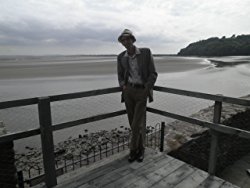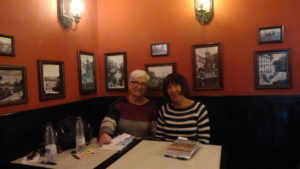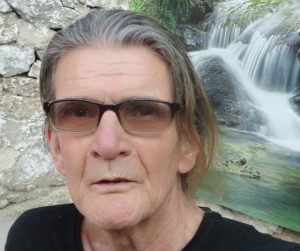Out of Range (i.)
Version (i.)
*
a mauve sky grey pine dawn breaks out of the black ripes pale blue
& green the painter's eye steals the words on my breath
*
a storm of cicadas a multitude of the unseen chorus in the pine we are here
small & large before invasion from the skies helicopters policing the boundaries
of consciousness
*
out of bounds fucking fences against the skyline barbed hegemony for fear
the world will open like a chasm & swallow you drone of the traffic closing in smell
of human rubbish dumped
*
the leaning day belongs where i understand i know i believe i believe i
understand i know who cares where leaning freezes where leaning melts where
not even shadows are left
*
belonging to what belonging to where belonging to belonging more or less it
depends on the direction i suppose i feel like an air spider out of range
*
on a sea of glass a parade of phantoms line up like a pageantry of Argonauts on
the edge of the world what is the purpose of such dreams i ask myself do i wanna
play skittles
*
a moving pattern of events a shape beckons to an impossible horizon a
dimension a spontaneous creation i live in hope or perhaps in the desperation of
life before death
*
since the out of range is beyond controle there is no belonging nor reach but is
it a direction as when the arrow's flight disappears in the blue
*
or when the soaring bird soars more leaving you lighter than air or am i back at
the beginning again for you cannot go on paying forever
*
enough who needs horizons to speak of let them vanish large & small small &
large avoid voidness
but beware there are no archetypes other than those we have made over time
however animate nature might be
*
still the shape perhaps beckons still we sleep on air like swifts on flight to
distant skies
*
dawn sometimes is a background of yapping domestic dogs suddenly somewhere
deep in the density of the wooded hill a single bark from a solitary stray i see
four foal deer today
*
everywhere it's best just to find a cover & make it the rest a spot is sufficient
*
a figure in the distance approaches through many resemblances before
recognition memory is an evolutionary tool they say but it can also serve
to betray
*
time has many dimensions it appears but it's always an event for the reality
of now to be real time must be real
what is real nothing is real they say well nothing & a bit even the present gets out of
range after a while
*
coughing & spluttering on fumes like the ramshackle motorcycle that's beaten me
to the chase at the top of the path
i breathe after the fragrance of dawn breaking with it 's mirage of green as DNA
sparkles in the dew wondering next which way to go
*
trees can look majestic but they can also look twisted grasping & monstrous with their
litter of dead wood scattered on the ground
like the bones of the countless dead mostly when evening rots
*
below me now is nothing but the tinkling bells of the goat herd & shouts of the herder
*
everywhere is strewn the ruins of the dykes amidst a deluge of rocks stones &
boulders fallen to uselessness in less than a century from their hand built toil less
than a century before
now they form only in their overgrown tomb a fading phantom history
*
a full dawn moon mere earthlings we exist because of her bounty despite her
indifferent scorn insects scurry we tread soon i'll get to water where
now she fades out of day
out of range
Robin Ouzman Hislop is on line Editor at Poetry Life & Times at Artvilla.com. His numerous appearances include Cold Mountain Review (Appalachian University, N.Carolina), The Honest Ulsterman, Cratera No 3 and Aquillrelle’s Best. His publications are collected poems All the Babble of the Souk, Cartoon Molecules, Next Arrivals & Moon Selected Audio Textual Poems. A translation from Spanish of poems by Guadalupe Grande Key of Mist and Carmen Crespo Tesserae, the award winning (X111 Premio César Simón De Poesía), in November 2017 these works were presented in a live performance at The International Writer’s Conference hosted by the University of Leeds. UK. A forthcoming publication of collected poems Off the Menu is expected in 2020
You may visit Aquillrelle.com/Author Robin Ouzman Hislop about author. See Robin performing his work Performance (University of Leeds)





